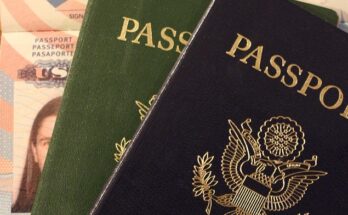With it’s beautiful and charming scenery, good welfare and high happiness index, New Zealand has always been a country on the hit list of many people. So if you are wondering how to immigrate to New Zealand from South Africa, how to immigrate to New Zealand from USA, how to migrate to New Zealand from Philippines with family or how to migrate to New Zealand as a doctor, this article summarizes all you need to do.
Despite being a small country, there are many natural scenery such as volcanoes, geothermal, glaciers, fjords, snow-capped mountains, lakes, etc.
There are also many cultural features such as Hobbit Village, Maori culture, winery farms, etc.
⇒Join us on Telegram for more Sure and Accurate football-winning tips every day...click here
All of this unique attributes have seen tourists flock to this picturesque nation, but you could enjoy absolutely all of this permanently if you migrate to New Zealand.
How to Migrate to New Zealand
There are four main categories of immigrants in New Zealand:
1. Skilled immigration (general skilled immigration, referred to as SMC; Work to Residence, referred to as WTR, WTR mainly has the following three categories: list of long-term shortage occupations, trusted employers; excellent talents)
2. Business category immigration (investment immigration category I and II; entrepreneurial immigration-high standards and high visa rejections in recent years)
3. Family immigration (same-sex heterosexual spouse/partner; parent reunion immigration (opened in early 2020, closed after the epidemic); parent retirement investment; dependent children reunion)
4. Humanitarian aid to migrants
1. Skilled immigration
Skilled immigration is the most important immigration method in New Zealand.
The so-called skilled immigration refers to the applicant’s academic qualifications, work experience, professional skills, etc. Immigrants are granted resident status in accordance with the requirements of the New Zealand Immigration Service.
Here are the top quick skills you can learn before moving to New Zealand.
Skilled immigration is mainly divided into the following types:
I. Work Skilled Immigration
II. Study Abroad Skilled Immigration
III. WTR certified employer category
2. Business immigration
Business immigration refers to the ultimate acquisition of resident status through investment or successful business operations in New Zealand. At present, it is mainly divided into two categories: investment immigration and entrepreneurial immigration.
A. Investment immigration
New Zealand investment immigration is mainly divided into two categories: investment immigration I and investment immigration II.
These immigration sub-divisions are also known as New Zealand high investment immigration (Class I) and New Zealand ordinary investment immigration (Class II).
B. Entrepreneurship immigration
The entrepreneurial work visa is for entrepreneurs who want to do business in New Zealand.
After the business has been in operation for 2 years, holders of entrepreneurial work visas can apply for entrepreneurial resident visas (if the holders meet some additional conditions, they can apply for entrepreneurial resident visas as soon as 6 months later).
Long-term business visa holders can also apply for New Zealand residents under the category of entrepreneurial residents
3. Family reunion immigration

Family group immigration is a very humane category of New Zealand’s immigration policy. It provides New Zealand citizens and permanent residents with the opportunity to reunite with overseas family members and live together in New Zealand.
Approximately 15,000 people in this category are approved by the Immigration Department each year, accounting for 30% of New Zealand’s total immigration quota.
Family immigration is New Zealand’s second largest immigration method. Mainly divided into spouse reunion immigration and parent reunion immigration.
4. International humanitarian relief
Humanitarian relief migrants are what we often call refugee-type migrants, which refer to those people who have nowhere to settle in their own country because they will suffer war, violence, or spiritual persecution.
This type of immigration needs to be in New Zealand to be feasible. And once your application is successful, it means that you will never return to your home country, and the scope of application is relatively limited.


